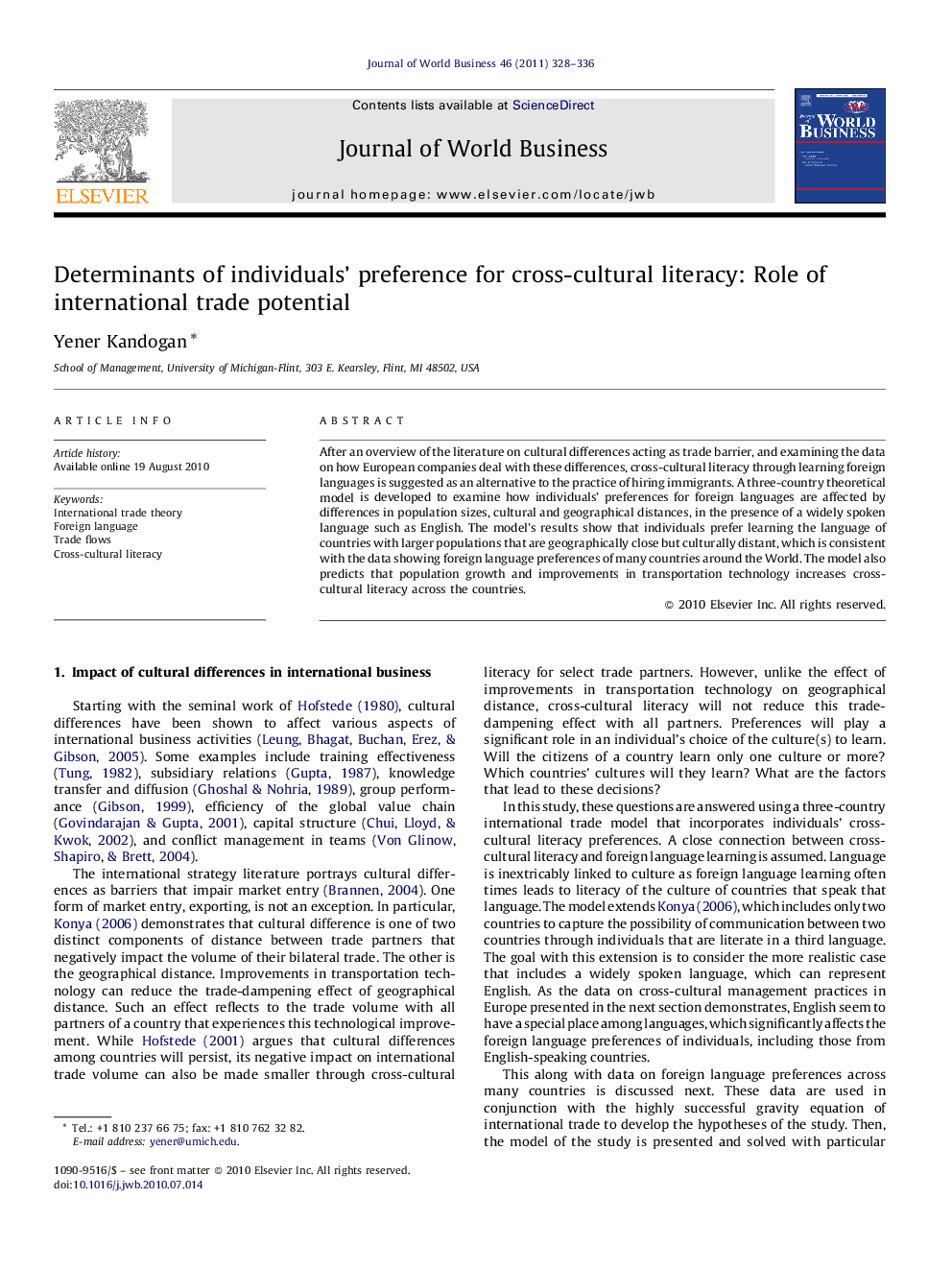| Article ID | Journal | Published Year | Pages | File Type |
|---|---|---|---|---|
| 1002230 | Journal of World Business | 2011 | 9 Pages |
After an overview of the literature on cultural differences acting as trade barrier, and examining the data on how European companies deal with these differences, cross-cultural literacy through learning foreign languages is suggested as an alternative to the practice of hiring immigrants. A three-country theoretical model is developed to examine how individuals’ preferences for foreign languages are affected by differences in population sizes, cultural and geographical distances, in the presence of a widely spoken language such as English. The model's results show that individuals prefer learning the language of countries with larger populations that are geographically close but culturally distant, which is consistent with the data showing foreign language preferences of many countries around the World. The model also predicts that population growth and improvements in transportation technology increases cross-cultural literacy across the countries.
